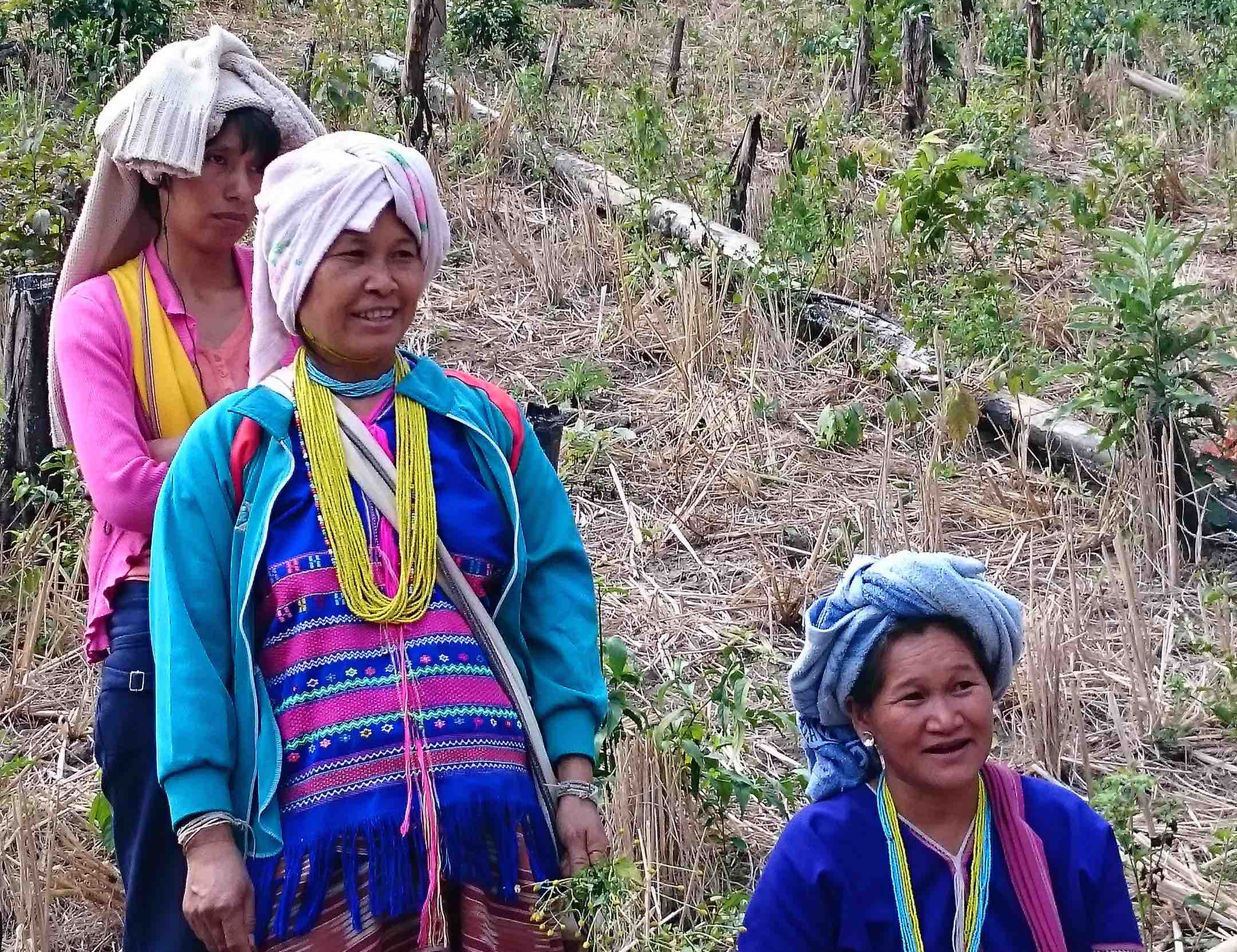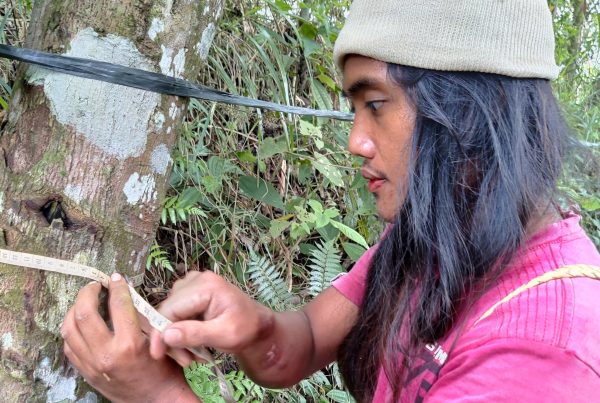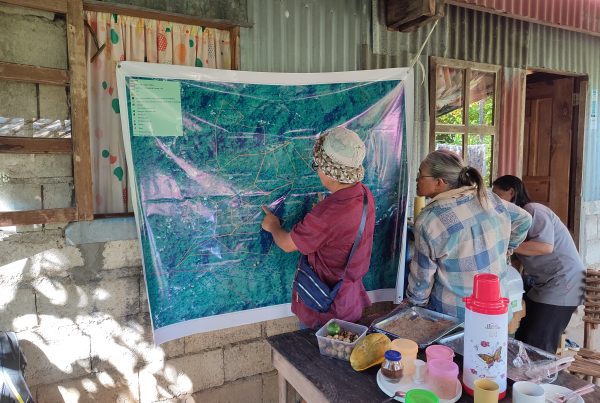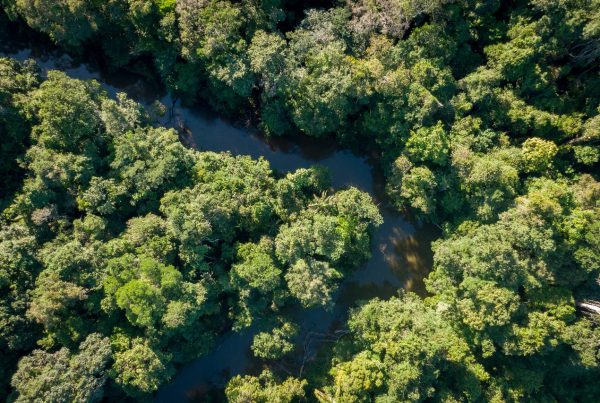The Indigenous Knowledge and Peoples network (IKAP), a regional network of indigenous communities throughout mainland montane Southeast Asia, and the Inter Mountain Peoples’ Education and Culture in Thailand Association (IMPECT), a network of indigenous peoples in northern Thailand, have carried out detailed research during the past two decades in three areas in Chiang Mai province where rotational farming is practised.
Rotational farming is an agroforestry practice where a selected patch of land is cleared and the vegetation is dried and then carefully burned. The land is then cultivated and, after harvesting, left fallow for a long period (generally seven to ten years) to regenerate. This practice is based on deep cultural and spiritual relationships between the people and the environment and follows many customary rules and regulations. The research done by IKAP and IMPECT involved community monitoring of Karen farming areas in Ban Mae Lan Kham 1 and Hin Lad Nai2 using a stock-based approach to analyse above-ground carbon. The net carbon storage from fallow fields covering 236 hectares that were left to recover for up to ten years accounted for 17,348 tonnes of carbon, while CO2 emissions from the burning of fields amounted to only 480 tonnes of carbon. Thus the overall effect of rotational farming was a reduction in carbon emissions.
The research also documented a large number of edible plant species that grow naturally or are planted in each successive year during the seven to ten year fallow period, all of which contribute significantly to food security and sustainable livelihoods. In addition, various wild animal species were attracted to the fallow plots for food. Overall the research concluded that rotational farming stores much more carbon than it emits and contributes to sustainable livelihoods, food security, the resilience of agroforestry systems and increased biodiversity.3
The research led to a change in government and media perspectives on rotational farming. In 2010 the Thai Government passed a Cabinet Resolution for the Revitalisation of the Karen Way of Life, thereby providing policy support for the maintenance and revitalisation of these important customary practices in northern Thailand.
Photo: Maurizio Farhan Ferrari, FPP
Author
- Prasert Trakansuphakon, Indigenous Knowledge and Peoples network (IKAP)
Ecosystems
- Tropical forests
Topics
- Food
- Knowledge, culture and spirituality
Type
- Short-form
Date
- This case study forms part of LBO-1, originally released in 2016.
References
- IKAP. Innovations in Community Carbon Accounting and Forest-land Management in Karen Villages in Northern Thailand. Research report 1, (2013)
- NDF & Huay Hin Lad community. Climate change, trees and livelihood: A case study on the Carbon Footprint of a Karen community in Northern Thailand. (2012). at <http://unfccc.int/resource/docs/2012/smsn/ngo/240.pdf>
- Trakansuphakon, P. in Shifting cultivation and environmental change: Indigenous people, agriculture and forest conservation (ed. Cairns, M. F.) 335–356 (Earthscan Routledge, 2015)



